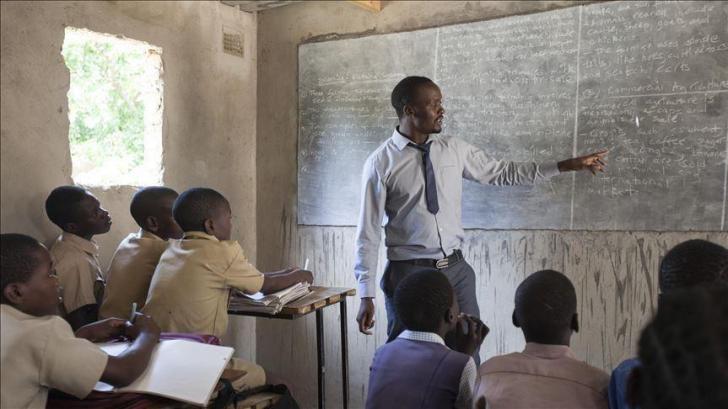News / National
10 000 teachers recruited Zimbabwe-wide in 2024
04 Oct 2024 at 07:22hrs |
0 Views

More than 10,000 teachers have been employed and deployed to schools across Zimbabwe this year, in a move that aligns with President Mnangagwa's job creation agenda and his administration's ongoing efforts to improve education outcomes in the country.
In an interview, Ministry of Primary and Secondary Education spokesperson, Mr. Taungana Ndoro, revealed that a total of 10,506 teachers have been recruited in 2024 alone. He noted that this increase in the teaching workforce has already led to significant improvements, including better teacher-student ratios, enhanced learning outcomes, and improved curriculum delivery.
"The recruitment of 10,506 teachers has had a positive and immediate impact on education delivery in Zimbabwe," said Mr. Ndoro. "One of the key benefits of employing more teachers is the improvement in teacher-student ratios. With more educators in the classroom, we can ensure that each student receives more individualised attention, which is crucial for effective learning and engagement. This helps foster a more supportive and nurturing environment for students."
He also emphasized that reducing the workload on existing teachers has allowed for better engagement with the community, strengthening ties between schools and local stakeholders.
President Mnangagwa's administration has prioritized improving the education sector as part of its broader Vision 2030 plan, which seeks to elevate Zimbabwe to an upper-middle-income economy. In recent years, his government has made strides in increasing access to education, improving infrastructure, and addressing challenges in the system, such as teacher shortages.
The addition of over 10,000 teachers nationwide marks a critical step in addressing these challenges, with the Ministry of Primary and Secondary Education expecting continued progress in learning outcomes as a result of these efforts. The recruitment drive is also part of President Mnangagwa's broader job creation strategy, aimed at providing more employment opportunities in key sectors of the economy, including education.
This initiative comes as Zimbabwe continues to focus on improving the quality of education across the country, ensuring that students are better equipped to meet the demands of a rapidly evolving global economy.
In an interview, Ministry of Primary and Secondary Education spokesperson, Mr. Taungana Ndoro, revealed that a total of 10,506 teachers have been recruited in 2024 alone. He noted that this increase in the teaching workforce has already led to significant improvements, including better teacher-student ratios, enhanced learning outcomes, and improved curriculum delivery.
"The recruitment of 10,506 teachers has had a positive and immediate impact on education delivery in Zimbabwe," said Mr. Ndoro. "One of the key benefits of employing more teachers is the improvement in teacher-student ratios. With more educators in the classroom, we can ensure that each student receives more individualised attention, which is crucial for effective learning and engagement. This helps foster a more supportive and nurturing environment for students."
He also emphasized that reducing the workload on existing teachers has allowed for better engagement with the community, strengthening ties between schools and local stakeholders.
President Mnangagwa's administration has prioritized improving the education sector as part of its broader Vision 2030 plan, which seeks to elevate Zimbabwe to an upper-middle-income economy. In recent years, his government has made strides in increasing access to education, improving infrastructure, and addressing challenges in the system, such as teacher shortages.
The addition of over 10,000 teachers nationwide marks a critical step in addressing these challenges, with the Ministry of Primary and Secondary Education expecting continued progress in learning outcomes as a result of these efforts. The recruitment drive is also part of President Mnangagwa's broader job creation strategy, aimed at providing more employment opportunities in key sectors of the economy, including education.
This initiative comes as Zimbabwe continues to focus on improving the quality of education across the country, ensuring that students are better equipped to meet the demands of a rapidly evolving global economy.
Source - The Herald
Join the discussion
Loading comments…


































